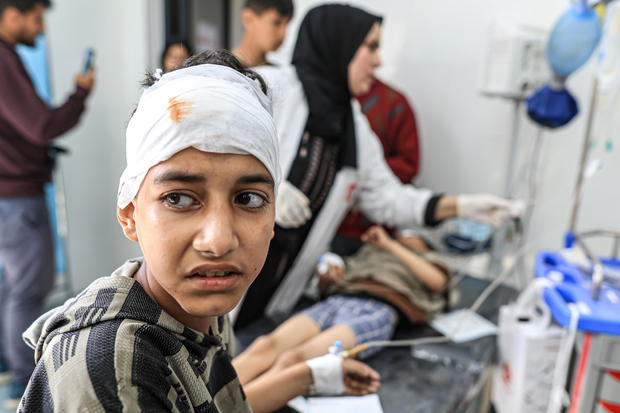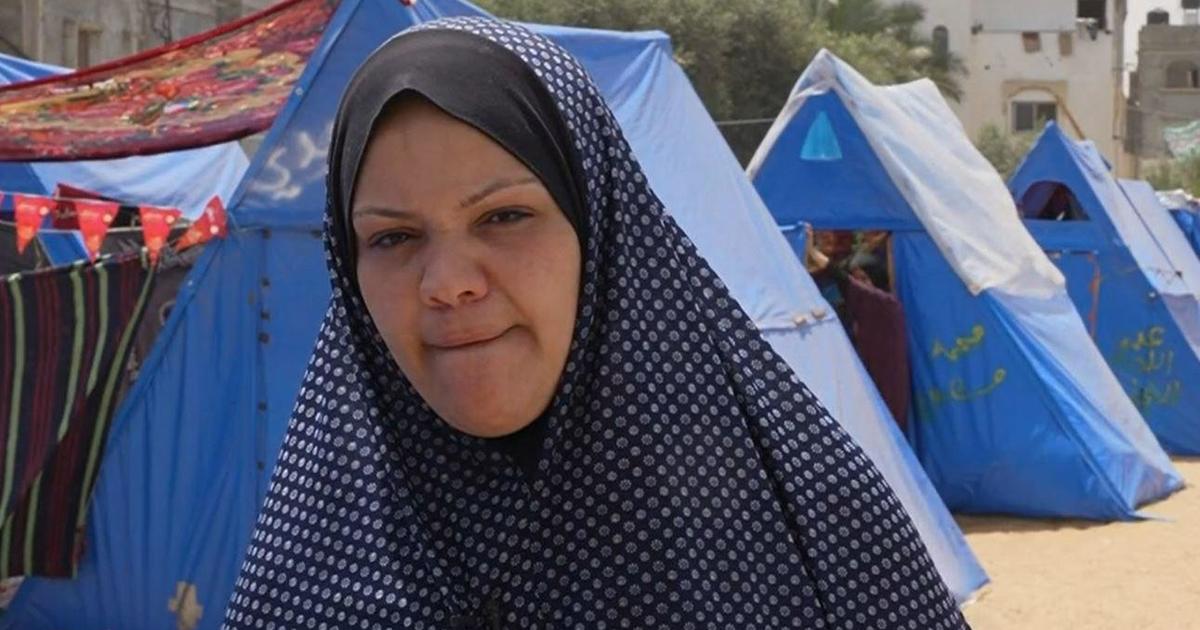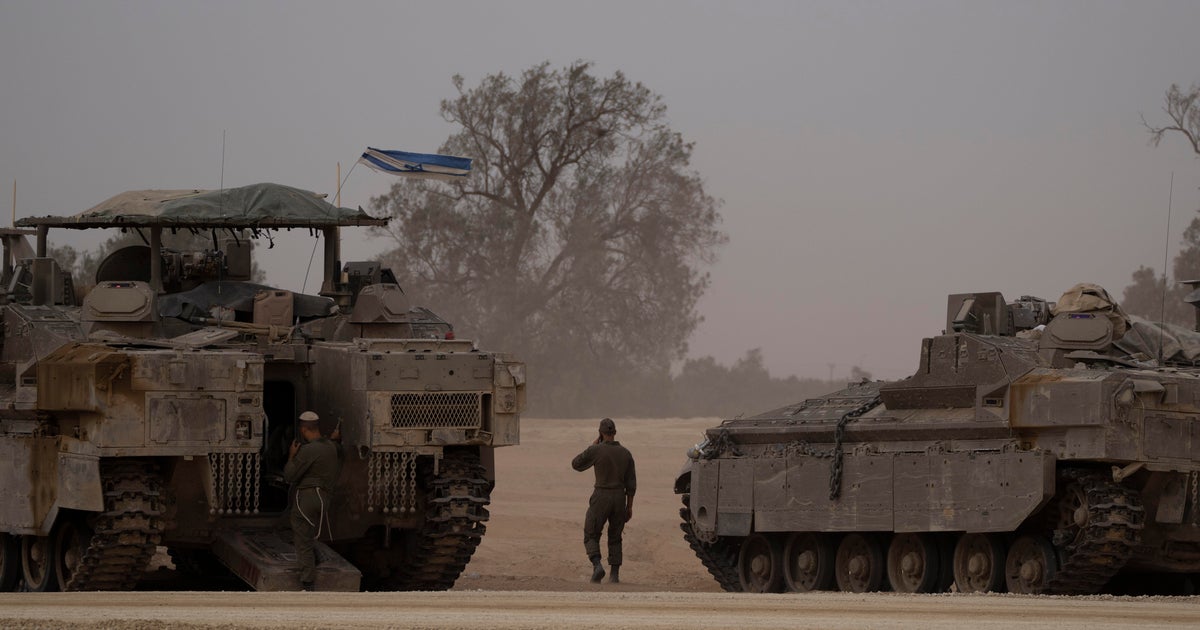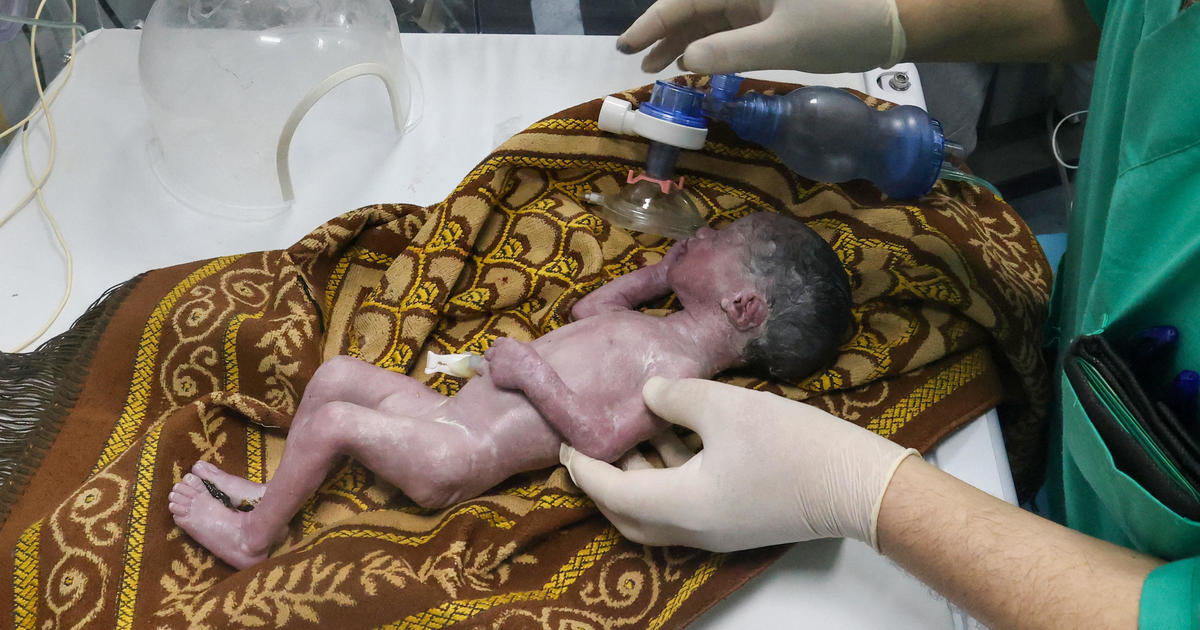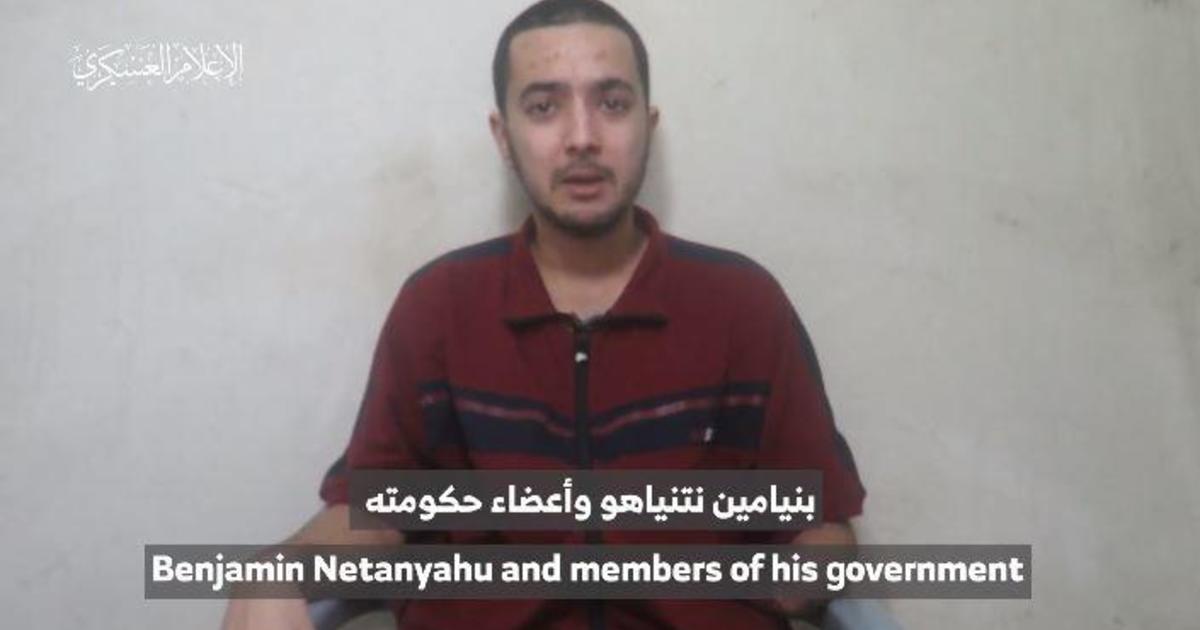Netanyahu dismisses Biden's warning over "innocent lives being lost" in Israel's war with Hamas in Gaza
Jerusalem — In interviews over the weekend, President Biden said Israeli Prime Minister Benjamin Netanyahu's disregard for the "innocent lives being lost" amid his country's war with Hamas in the Gaza Strip was "hurting Israel more than helping Israel."
Netanyahu said Mr. Biden was "wrong on both counts," claiming that both his political and military policies were supported by an "overwhelming majority" of Israelis who "support the action that we're taking to destroy the remaining terrorist battalions of Hamas."
Mr. Biden's remarks to MSNBC on Saturday reflected his growing frustration over the situation in Gaza, where the Hamas-run health ministry says well over 30,000 people have been killed since Israel launched its offensive in response to the Palestinian militant group's Oct. 7 terrorist attack. That attack left about 1,200 people dead across southern Israel and saw Hamas seize roughly 240 hostages, about 100 of whom are believed to remain in captivity.
Natanyahu rejects Biden's warning, draws own "red line"
Israel has maintained strict military control over all of Gaza's borders since the war began and has been accused of severely limiting the flow of desperately needed humanitarian aid into the decimated Palestinian territory, where the United Nations says hundreds of thousands of people are facing imminent starvation.
As the humanitarian crisis worsens, Israeli military forces are still preparing to launch a ground operation into the southern Gaza city of Rafah, long a Hamas stronghold where Netanyahu says the U.S. and Israeli-designated terror group still has several combat units. But Rafah has also become a refuge for an estimated 1.5 million Palestinians who have fled from their homes elsewhere in Gaza.
President Biden was asked over the weekend if Israel ignoring the many warnings from Washington, other Israeli allies and global humanitarian aid agencies against carrying out a Rafah siege would be a red line.
"I'm never going to leave Israel," vowed Mr. Biden, who has stressed Israel's right to defend itself since the Hamas attack. "The defense of Israel is still critical, so there's no red line [at which] I'm going to cut off [U.S. provision of] all weapons."
But Mr. Biden added, without providing any detail of what they might be, that there were some "red lines" for Israel's actions, suggesting he could take action if there were an operation by the Israel Defense Forces that caused an additional huge loss of civilian life.
"You cannot have 30,000 more Palestinians dead as a consequence," said the U.S. president, adding that there were "other ways to deal, to get to, to deal with the trauma caused by Hamas."
Netanyahu, responding to Mr. Biden's remarks in an interview with Politico, vowed that his forces would push into Rafah.
"I have a red line," he said. "You know what the red line is? That Oct. 7 doesn't happen again. Never happens again."
Desperation grows in Gaza
Time and food are running out fast in Gaza, with the Biden administration's hopes for a cease-fire before Ramadan now quashed and the U.N.'s World Food Program warning that more than 500,000 people — a quarter of the Gaza Strip's total population — are "one step away from famine."
At the Emirati Hospital in Rafah, Ahmed al-Shair, the deputy head of the neonatal intensive care unit, has been monitoring the tiny babies examines being kept alive in the facility's overcrowded incubators.
"We have approximately three or four babies in each one," he told CBS News. "There's no oxygen, milk or special medications. We sometimes have to choose whose conditions will allow them to live and whose won't."
Gaza's bombed-out infrastructure and lawlessness as Israel attacks Hamas — a group that had run all the enclave's institutions for almost two decades, including its police force — have impeded food delivery. Aid groups are wary of trucking goods into the northern part of the densely populated strip of land, where it's most badly needed.
As an emergency alternative, the U.S. and several other countries have been dropping food and supplies from military aircraft, which isn't just limited and costly, but dangerous as well. Health officials and witnesses say food parcels falling to the ground with parachutes that failed to open fully have killed at least eight people.
Those hazards are one reason the U.S. military — which has no boots on the ground in the Palestinian territory — will establish a temporary pier off the Gaza's Mediterranean coast, so aid can be delivered by sea.
But shipping all the necessary components and teams required to get the pier up and running will take weeks.
Tension as Ramadan starts without a cease-fire deal
In addition to the looming prospect of an Israeli offensive in Rafah, concern over a possible escalation in the five-month war was also mounting Monday as many countries started marking the Islamic holy month of Ramadan. It is a time of prayer and fasting for Muslims across the globe, but in recent years, it has also seen violent clashes in Jerusalem over Israel restricting access to Muslim holy sites.
The Biden administration has been scrambling for a cease-fire in exchange for the release of dozens more of the Israeli hostages still believed to be held in Gaza. Israel's inability to rescue those people has fueled months of tense protests led by their families.
Despite Israel's punishing airstrikes and ground offensive, Hamas and Israel have continued to accuse each other of refusing to make a reasonable deal.
"I wish the Americans will be able to put more pressure in the coming few days, and rescue the whole region from an explosion," Samer Sinijlawi, an activist with the Palestinian political party Fatah, told CBS News.
"It's a ticking time bomb," he warned. "Nobody knows what will happen. But something will happen."
